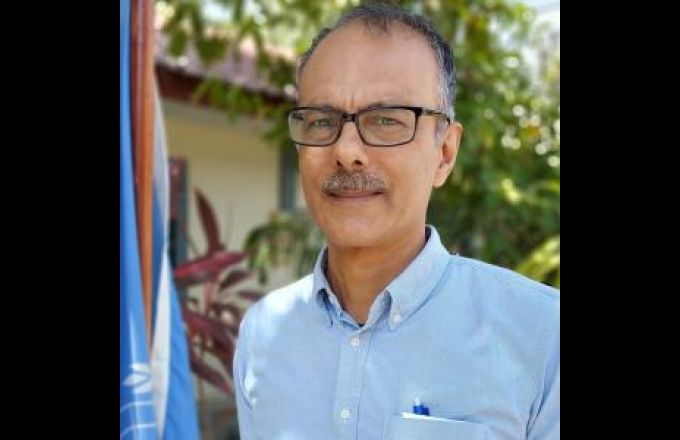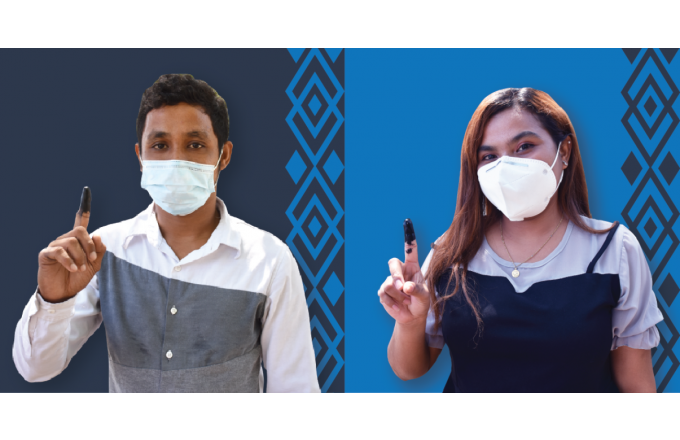'In exercising the democratic right to vote, it is important that you respect each other's rights and diverse views. Peaceful elections are vital for democracy'.
Presidential Elections are due to be held in Timor-Leste on 19 March 2022. With the electoral campaigns about to commence, there is growing excitement in the country. These will be the first elections in the country since the COVID-19 pandemic began, and Timor-Leste was hit by one of the worst floods in its history almost a year ago. This election also coincides with the 20th anniversary of the country’s restoration of independence.
If none of the candidates secures more than 50% of the votes in the first round in March, a second-round will be organised in April, which will involve a run-off between the two top candidates with the most votes.
As a result of its record of organising well-run, free and fair elections in the past, Timor-Leste has established a good record and demonstrated its commitment to transparent and inclusive elections. Continuing this trend will further strengthen public confidence in the electoral process and in the work of the Secretariat for Election Administration (STAE) and the National Election Commission (CNE).
This election sees sixteen candidates, some independents and some with party affiliations (the largest number since the Restoration of Independence in 2002), all aiming to serve as the country’s President for the next five years.
While COVID-safe election preparations are now in full swing, the electoral authorities will also be hoping that the rains forecasted and possible damage to roads and infrastructure do not affect voter turnout in the country.
There are five additional elements that will be especially interesting to watch for in these elections:
First-time Voters – With some 200,000 newly registered young voters heading to the ballots for the first time this year, the millennials will have a say in these elections. With many young women and men voting this time, how will they choose to vote? Will first-time voters look to vote for candidates who can address the concerns of their generation, such as education and jobs? How will the media, including social media influence first-time voters?
Women’s participation and leadership – This election sees several experienced female candidates standing. What does this mean for advancing gender equality in Timor-Leste? Will female voters choose to vote for women candidates? Will a candidate’s gender affect the behaviour of voters?
How will party affiliations affect voting patterns - Will voters be influenced by party affiliations? In the event that the party’s nominated candidate fails to secure sufficient votes in the first round what voting guidelines will party officials give to their members on the second round of polls?
Will the candidates' experience of government be a major factor influencing voters – Will the electorate choose to vote for the candidate with the most government experience or will they choose to vote for possibly younger candidates, with the hope that they will bring new ideas and energy to the Office of the Presidency?
Geographical Voting - Will voters from different parts of the country (North/South/East/West) and different municipalities have different priorities and “asks” from the candidates? Or are there elements that voters from all parts of the country are looking for in a President?
These are five interesting elements to watch for. An important element to emphasise is that whatever your views, it is important that if you are eligible you should vote! In exercising the democratic right to vote, it is equally important that you respect each other's rights and diverse views. Peaceful elections are vital for democracy. And, whatever the final result, it is clear that whichever candidate wins, will play a vital role in shaping the next phase of the country’s development.

Roy Trivedy
UN
Resident Coordinator









